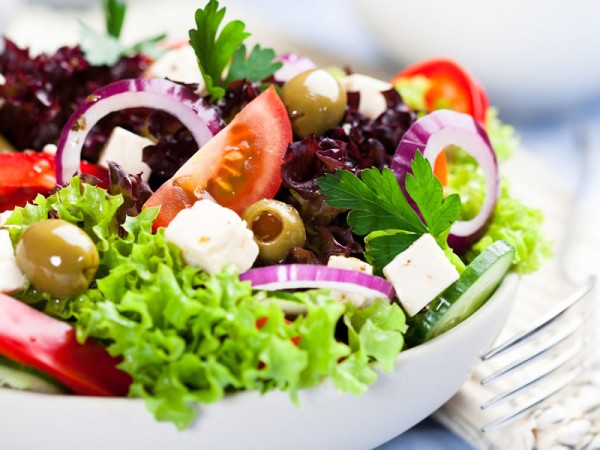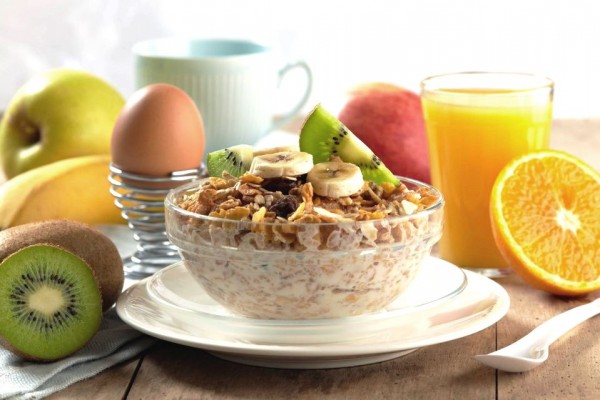5 harmful and 5 useful products for the vocalist. Features of nutrition and sound of the voice
Nutrition plays a big role in the life and work of a vocalist. Sometimes a hoarse voice does not appear due to diseases of the throat, but due to malnutrition. The problem concerns not only the main food of the singer, but also the use of certain foods before singing.
There is an opinion that vocalists are forbidden only to eat seeds, as it is harmful to the voice, and before singing, you need to drink raw eggs. In fact, the list of foods that vocalists should not eat is much wider than vocal teachers say. Let's take a closer look at this issue, and also give the top 5 most useful and harmful products for the voice.
How food affects the voice
Any food affects the elasticity of the mucous membranes of the throat and larynx in different ways. Some contribute to a better stretching of the tissues, due to which the hoarse coloring of the voice can disappear, others increase the unpleasant sensation during singing. Therefore, in one case, food can be useful for the vocalist, in the other - harmful.
Not only the color of the voice, its pleasant sound and ease of singing, but also the removal of some clamps will depend on it. After all, when there is discomfort in the throat, it becomes difficult and very uncomfortable to sing. Therefore, all products can be divided into useful for the vocalist, which contribute to the elasticity of soft tissues, and harmful.
The amount of food is also important. If the diet is unbalanced and irrational, then the voice may lose strength. Therefore, diets, especially starvation diets, infrequent eating, and the rejection of fats can weaken the power of the voice and make it dull and inexpressive.

A small amount of food can rob your voice of beauty, power and reduce its range, so you should not go on a diet before a responsible performance. You will sing much worse than before, as your voice will sound weak and inexpressive. But do not eat a lot, especially before singing.
Heavy food can put pressure on the diaphragm and lead to weakness, difficulty singing, and reduced vocal range. On a full stomach, you will sing heavily and with great effort, as there will be no elasticity in the soft tissues of the larynx. That's why you need to eat an hour before singing so that there is support for sound, but at the same time the stomach should not be overloaded.
How does food affect the voice in general? It depends on what exactly you ate on the day of singing. Experts advise eating some solid food, such as mashed potatoes, porridge or a sweet baked pie an hour before the performance. Then you will not feel hunger and your voice will acquire the necessary dense respiratory support.
The voice is also affected by long-term use of certain foods. They can cause irritation of the mucous membrane of the throat, cause wheezing, coughing and an unpleasant sensation, as if a mote, a foreign body, has entered the larynx. This is how food affects the voice, or rather harmful foods that many, without knowing it, systematically consume.

First of all, they include:
- Seeds, peanuts, seasoned croutons and salted nuts. They contain a lot of fat and salt, as well as irritating additives, therefore, with their regular use, the mucous membranes can lose their elasticity. The voice becomes hoarse, its overtonal coloring decreases, and it becomes uncomfortable to sing. You may feel itchy, so even if you don't eat these foods on singing day, they can hurt you. The vocalist should refuse them altogether.
- Spicy ketchups, mustard, horseradish and spices. They can be added to food only in small quantities and in no case should be consumed 6 hours before singing. All of them not only irritate the throat, but also contribute to the excessive production of mucus, which makes it difficult to sing and can even provoke a cough.
- Fatty fried meat, potatoes and chips, as well as spicy fast food. Fat dehydrates the vocal cords, which can lead to coughing and difficulty singing, especially at the races and in places where there are long notes. Any fatty foods should be eaten in the morning a few hours before singing, if we are talking about meat and meatballs, and chips should be completely excluded from the vocalist's diet. Also, do not add a lot of meat to salads.
- Ice drinks such as Cola, Fanta or Sprite. They can cause a shocking mucosal reaction and lead to a hoarse voice. Sometimes for a while it can disappear completely.
Alcoholic drinks, especially strong ones. For the voice, the most harmful of them can be called beer, cognac, vodka and strong tonics, especially with ice. Just like any drinks with ice, they can burn the mucous membranes with cold and even lead to a temporary loss of voice, and even to a sore throat.

5 useful products for the voice
They not only help to sing well, but also help in certain cases to restore the voice faster.
These include the following foods and drinks:
- Warm sweet black tea. An excellent tool for restoring the elasticity of mucous membranes and treating ligaments. For the best effect, it should not be hot, but warm.
- Low fat milk at room temperature. It must be drunk in small sips, slowly, to restore the voice. It gently envelops the throat and makes the voice stronger.
- Raw eggs. They should not be drunk before singing, as many vocalists advise, although their regular use contributes to the richness and softness of the voice. This remedy perfectly restores the strength of the vocalist, and also softens the throat, contributing to soft and beautiful singing. But only tested eggs bought on the market should be eaten so as not to become infected with a dangerous infection. Eggs are enough to drink once a week for a beautiful and clear voice.
- Butter. High-quality butter can be added to milk or simply absorbed in order to make singing more comfortable. But this is usually done an hour before singing and washed down with non-carbonated water.
- Plain water at room temperature. Sometimes this is the best way to quickly restore the voice. Just drink it slowly, in small sips.

The vocalist's diet - what is useful daily?
- Start the morning with a hearty breakfast. If you sing during the day or in the evening, you should eat more in the morning than in the afternoon in order to create a breathing support for the voice. You can eat meat, porridge or salads.
- During the day, it is recommended to eat a dense dish, but without additives, especially spicy and irritating to the throat. This will create a good breathing support for the voice.
- The vocalist's diet must include lean meat, but use it 3 hours before the start of singing.
- Vocalists include fish and caviar in the menu at least 2 times a week. They contain fats that are beneficial for the general condition of the body and vocal cords.
- Seafood can be eaten in unlimited quantities. Of course, you should not consume huge portions before singing, but they are a source of lean protein, which in some cases can replace meat. Unlike cutlets and lard, they cannot adversely affect the voice.
- Sweets, chocolate, cakes and ice cream can be eaten no earlier than an hour after singing. Some leaders of children's choirs give the choristers a piece of sugar before singing. You should not do this, as sweets can harm the beautiful and free sound of the voice.







